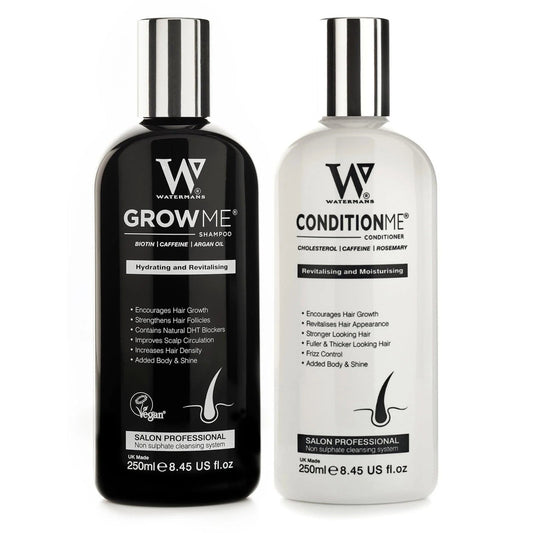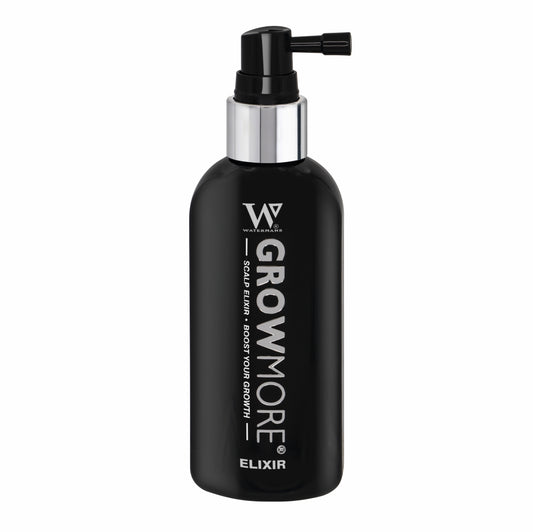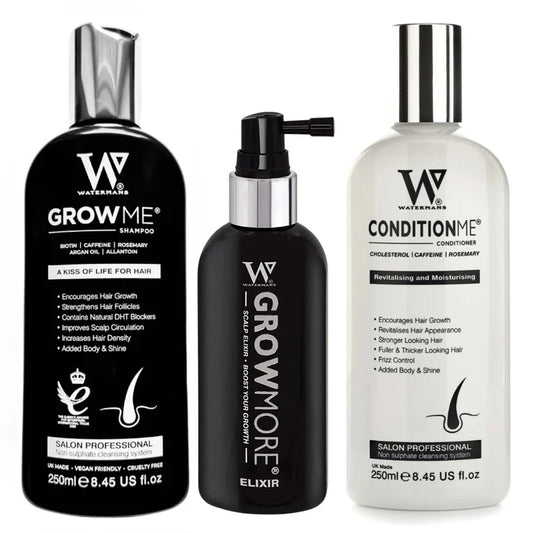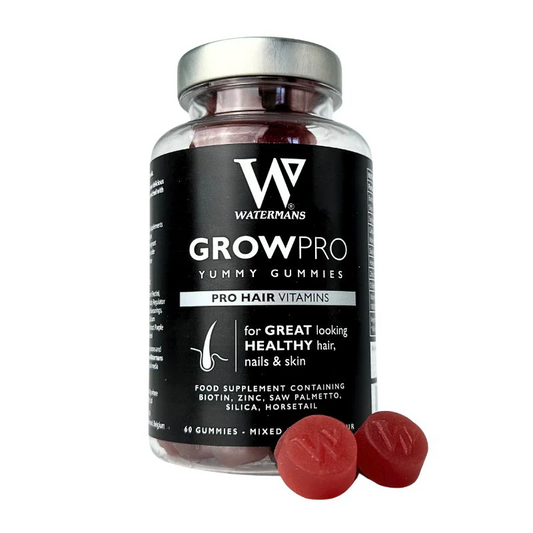Is Hair Loss from Menopause Reversible? Discover Effective Solutions and Hopeful Insights
Share

Menopause is a normal time in a woman's life. It brings a change in hormones that affects both the body and the mind. One sign many women see is hair loss. You can learn why hair loss happens and find ways to bring back your hair and self-esteem! In this article, we list the causes, give answers to common questions, and mention the Watermans Grow Me Shampoo.
Understanding Menopause and Hormonal Changes
Menopause usually comes between the ages of 45 and 55. Each woman may follow her own path. The ovaries make less estrogen and progesterone. This shift brings many body changes.
How Hormonal Changes Affect Hair Growth
Hormones help hair grow. A drop in estrogen quickly leads to changes. Estrogen helps hair grow and keeps shedding low. With less estrogen, you may see:
- Hair falling out more as the hair cycle is shorter.
- Thinner hair strands that feel weak.
- Bald spots that show up in some parts.
Why Does Hair Loss Happen During Menopause?
Hair loss during menopause, often called androgenetic alopecia, has many causes:
-
Hormone changes
The drop in estrogen makes male hormones stronger. These hormones make hair roots shrink. -
Family traits
Hair loss that runs in your family may show during menopause. -
Nutrition
A diet low in vitamins and minerals can speed up hair loss. -
Stress
Both body and mind stress can cause temporary extra hair loss.
Are There Solutions for Hair Loss During Menopause?
Natural Remedies
Eat a healthy diet with foods rich in iron, vitamin D, zinc, and biotin. These nutrients aid hair health. Supplements like biotin and omega-3 fatty acids can help. Check with your doctor first.
Topical Treatments
One good shampoo to try is the Watermans Grow Me Shampoo. It has ingredients that work very near each other:
- Biotin, which builds and supports hair.
- Rosemary, which moves blood to the scalp.
- Caffeine, which wakes up hair roots.
- Niacinamide, which keeps the scalp calm.
- Argan Oil, which adds moisture and shine.
- Allantoin, which calms irritation.
- Lupin Protein, which stops breakage.
These parts work close together to push hair from the roots and add body to your hair.
Medical Treatments
If home choices do not work, you might try medical care:
- Hormone Replacement Therapy helps bring hormones back. Talk with a health pro first.
- Minoxidil, a liquid you put on the scalp, may help fight hair thinning.
Frequently Asked Questions (Q&A)
Q1: Is hair loss from menopause permanent?
Hair loss may last when it comes from hormone shifts. Shampoos with growth helpers can make a difference.
Q2: Can I stop hair loss during menopause?
Not all hormone shifts can be stopped. A good diet, key supplements, and hair products like the Watermans Grow Me Shampoo can lower hair loss.
Q3: How long does it take to see changes from hair treatments?
Each person sees change at his or her own pace. Some note improvement in weeks, while others need months of steady use.
Q4: What is the best way to style thin hair?
Pick styles that add body. Layers, soft waves, or textured cuts give the look of fuller hair. Avoid tight styles that pull on your hair.
Q5: How can I feel better if I lose hair?
Look after your body and mind. Try new styles and add accessories if you like. Joining a group with similar experiences may also help.
Did You Know?
- Women may lose around half of their hair density from 40 to 60.
- Thyroid issues can add to hair loss during menopause.
- Many women see more hair fall when they feel stress.
- Regular scalp massages move blood and may help hair grow.
- Hair can thin even after menopause, so it is wise to keep up care.
Hair loss during menopause can feel hard to bear. Knowing why it happens and seeing the steps that work can give hope. With products like the Watermans Grow Me Shampoo and a food-rich diet, you can care for your hair and self-worth.



